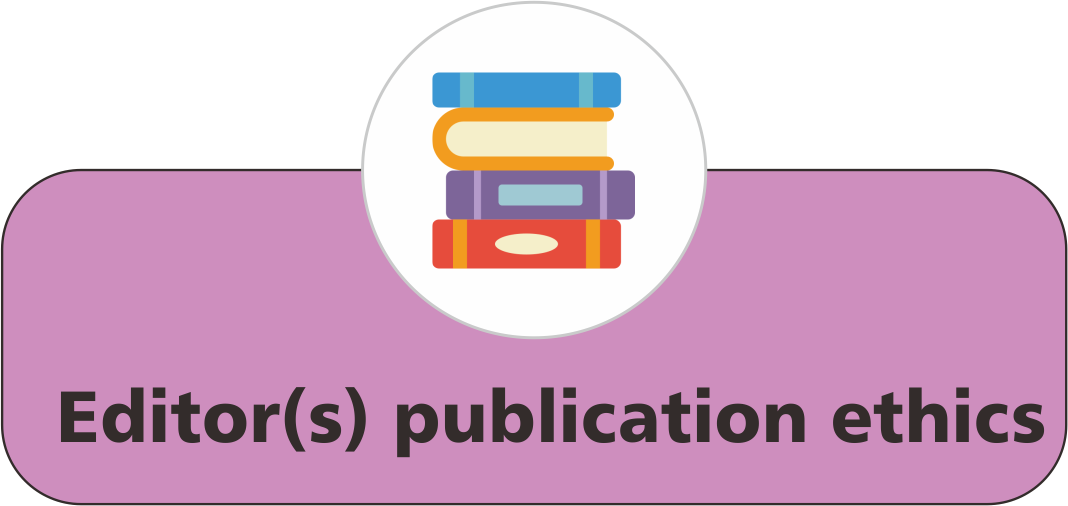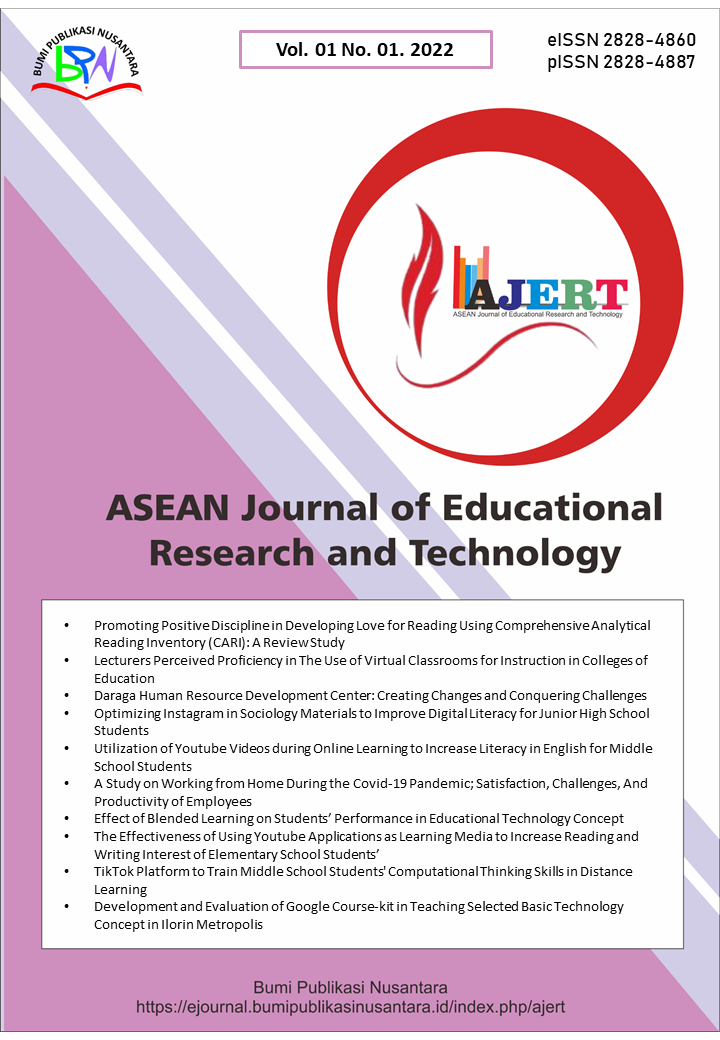An Investigation of Factors That Motivate Academics to Conduct Research and Research Productivity in Lao Public Universities
 ),
),
(1) National University of Laos
 Corresponding Author
Corresponding Author
Abstract
Keywords
References
Adasi, G. S., Amponsah, K. D., Mohammed, S. M., Yeboah, R., and Mintah, P. C. (2020). Gender differences in stressors and coping strategies among teacher education students at University of Ghana. Journal of Education and Learning, 9(2), 123-133.
Ahmed, H. M., Alkhateeb, N. E., Shabila, N. P., and Ahmad, A. A. (2024). Research practice, satisfaction, motivation, and challenges among university academics in Kurdistan Region of Iraq. Plos One, 19(4), 1-14.
Albert, C., Davia, M. A., and Legazpe, N. (2018). Job satisfaction amongst academics: the role of research productivity. Studies in Higher Education, 43(8), 1362–1377.
Barak, M. (2017). Science teacher education in the twenty-first century: A pedagogical framework for technology-integrated social constructivism. Research in Science Education, 47, 283-303.
Barrot, J. S. (2017). Research impact and productivity of Southeast Asian countries in language and linguistics. Scientometrics, 110(1), 1–15.
Bentley, P. J. (2015). Cross-country differences in publishing productivity of academics in research universities. Scientometrics, 102(1), 865–883.
Chen, Y., Gupta, A., and Hoshower, L. (2006). Factors that motivate business faculty to conduct research: An expectancy theory analysis. Journal of Education for Business, 81(4), 179–189.
Debackere, K., and Veugelers, R. (2005). The role of academic technology transfer organizations in improving industry science links. Research Policy, 34(3), 321-342.
Dec, G., Stadnicka, D., Paśko, Ł., Mądziel, M., Figliè, R., Mazzei, D., Tyrovolas, M., Stylios, C., Navarro, J., and Solé-Beteta, X. (2022). Role of academics in transferring knowledge and skills on artificial intelligence, internet of things and edge computing. Sensors, 22(7), 1-34.
Dill, D. D., and Soo, M. (2005). Academic quality, league tables, and public policy: A cross-national analysis of university ranking systems. Higher Education, 49, 495-533.
Feldman, M. P. (1994). The university and economic development: The case of Johns Hopkins University and Baltimore. Economic Development Quarterly, 8(1), 67–76.
Geuna, A., and Martin, B. R. (2003). University research evaluation and funding: An international comparison. Minerva, 41(4), 277-304.
Gholizadeh, H., Salehi, H., Embi, M. A., Ale Ebrahim, N., Danaee, M., Motahar, S. M., Tanha, F. H., and Osman, N. A. A. (2014). Relationship among economic growth, internet usage and publication productivity: Comparison among ASEAN and world’s best countries. Modern Applied Science, 8(2), 160–170.
Hicks, D. (2012). Performance-based university research funding systems. Research Policy, 41(2), 251-261.
Jadhav, B. N., Abdul Azeez, E. P., Mishra, N., and Senthil Kumar, A. P. (2024). Research productivity and publishing trends in publicly funded social work and psychology schools in India: A bibliometric analysis. Sage Open, 14(2),1-12.
Kapaanda, L. N., and Benedict, O. H. (2019). Researching together: Aligning academic employees with the institution’s research strategy. African Educational Research Journal, 7(4), 220–230.
Kelley, W. N. (2009). Tapping the riches of science: Universities and the promise of economic growth. The Journal of Clinical Investigation, 119(8), 2118.
Ketokivi, M., and Choi, T. (2014). Renaissance of case research as a scientific method. Journal of Operations Management, 32(5), 232-240.
Khalid, S., Gao, C., Orynbek, G., and Tadesse, E. (2024). Constructing a women-friendly academic ecology: Understanding the push and pull forces on Pakistani women academics’ research productivity. Studies in Higher Education, 49(12), 1–20.
Khan, I. A. (2015). Ethical considerations in educational research: A critical analysis. British Journal of Education, Society and Behavioural Science, 13(2), 1-8.
Kim, E.-J., and Park, S. (2020). Transformational leadership, knowledge sharing, organizational climate and learning: An empirical study. Leadership and Organization Development Journal, 41(6), 761–775.
Kipasika, H. J. (2024). Expression of leadership mission, vision, values, and strategic objectives in academic institution development practices. Journal of Research Innovation and Implications in Education, 8(1), 393-402.
Krejcie, R. V., and Morgan, D. W. (1970). Determining sample size for research activities. Educational and Psychological Measurement, 30(3), 607–610.
Lillis, T., and Scott, M. (2007). Defining academic literacies research: Issues of epistemology, ideology and strategy. Journal of Applied Linguistics, 4(1), 5-32.
McDonald, C. V. (2016). STEM Education: A review of the contribution of the disciplines of science, technology, engineering and mathematics. Science Education International, 27(4), 530-569.
Millum, J., and Bromwich, D. (2021). Informed consent: What must be disclosed and what must be understood?. The American Journal of Bioethics, 21(5), 46-58.
Nguyen, Q., Klopper, C., and Smith, C. (2016). Affordances, barriers, and motivations: Engagement in research activity by academics at the research-oriented university in Vietnam. Open Review of Educational Research, 3(1), 68–84.
Onwuegbuzie, A. J., and Collins, K. M. (2007). A typology of mixed methods sampling designs in social science research. Qualitative Report, 12(2), 281-316.
Perkmann, M., Tartari, V., McKelvey, M., Autio, E., Broström, A., D’este, P., and Sobrero, M. (2013). Academic engagement and commercialisation: A review of the literature on university–industry relations. Research Policy, 42(2), 423-442.
Powell, J. J., and Solga, H. (2010). Analyzing the nexus of higher education and vocational training in Europe: A comparative‐institutional framework. Studies in Higher Education, 35(6), 705-721.
Powers, J. B., and McDougall, P. P. (2005). University start-up formation and technology licensing with firms that go public: A resource-based view of academic entrepreneurship. Journal of Business Venturing, 20(3), 291-311.
Ramos-Eclevia, M., Janio, R. V, Vinzon, M. R., Eclevia Jr, C. L., and Apolinario, R. R. U. (2018). Researching together: Exploring research productivity and collaboration of librarians in ASEAN Countries. Journal of the Australian Library and Information Association, 67(3), 307–320.
Roulet, T. J., Gill, M. J., Stenger, S., and Gill, D. J. (2017). Reconsidering the value of covert research: The role of ambiguous consent in participant observation. Organizational Research Methods, 20(3), 487-517.
Sen, S., and Yildirim, I. (2022). A tutorial on how to conduct meta-analysis with IBM SPSS statistics. Psych, 4(4), 640-667.
Smilor, R., O'donnell, N., Stein, G., and Welborn III, R. S. (2007). The research university and the development of high-technology centers in the United States. Economic Development Quarterly, 21(3), 203-222.
Sukoco, B. M., Putra, R. A., Muqaffi, H. N., Lutfian, M. V., and Wicaksono, H. (2023). Comparative study of ASEAN research productivity. Sage Open, 13(1), 1-16.
Youtie, J., and Shapira, P. (2008). Building an innovation hub: A case study of the transformation of university roles in regional technological and economic development. Research Policy, 37(8), 1188-1204.
Article Metrics
Abstract View : 614 times
: 614 times Download : 409 times
Download : 409 times
Refbacks
- There are currently no refbacks.
Copyright (c) 2025 Bumi Publikasi Nusantara

This work is licensed under a Creative Commons Attribution-ShareAlike 4.0 International License.









